Smashed windscreens and knife threats: We're living in fear of our neighbours
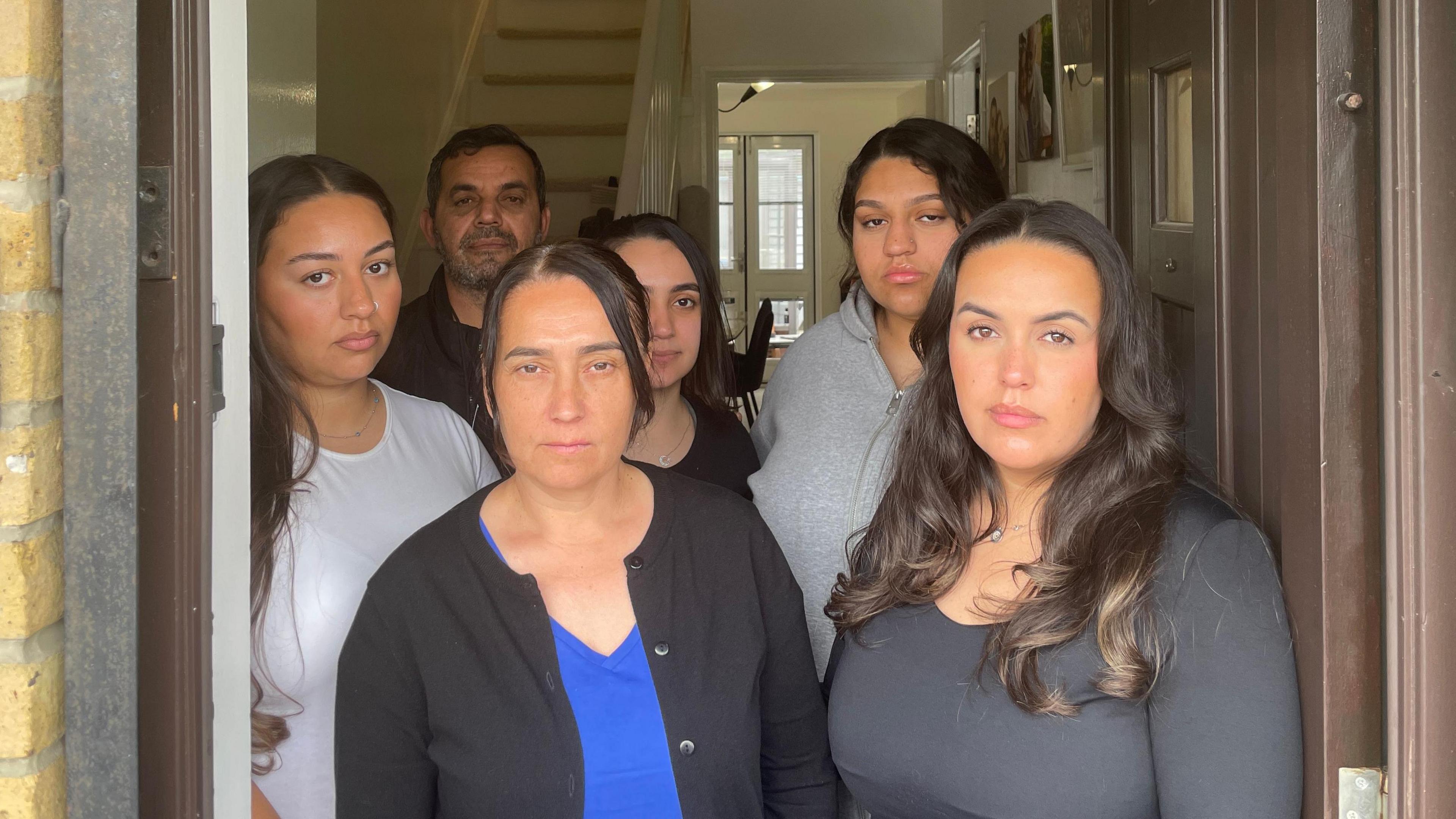
- Published
Over the past year, Dilara's next-door neighbour has threatened her father with a knife and damaged their property.
Dilara says she also smashed her sister's car windscreen with a hammer.
"I'm just scared," says the 17-year-old beauty therapy student, who lives with her family in south London, "it doesn't feel like a home to me anymore".
She says she struggled when doing her GCSEs last year as noise from the neighbour kept her awake - and the issue is still affecting her college studies.
"I'm really tired," she says, adding that sometimes she can't make it to school because she's so exhausted.
Sixty-six people have contacted Your Voice, Your BBC News telling us how they have dealt with relentless noise, vandalism, death threats and even physical assaults by neighbours. It comes after we reported on a couple plagued by anti-social behaviour earlier this year.
Meanwhile, the housing ombudsman told us complaints about such issues had doubled over the last five years and authorities needed to work more collaboratively to protect people.
Knife-threat neighbour still living next door
Dilara's father Ecevit, 50, says when he told their neighbour to turn the music down at 04:00 one morning in January, she came out with a knife.
The incident left him "shaking". The neighbour was arrested but released on bail and was back home the next day.
The neighbour pleaded guilty to threatening "a person with a blade/sharply pointed article in a public place" and will be sentenced in July. But the anti-social behaviour has continued.
Last month, she allegedly smashed the car windscreen of one of Ecevit's other daughters. The neighbour has now been charged.
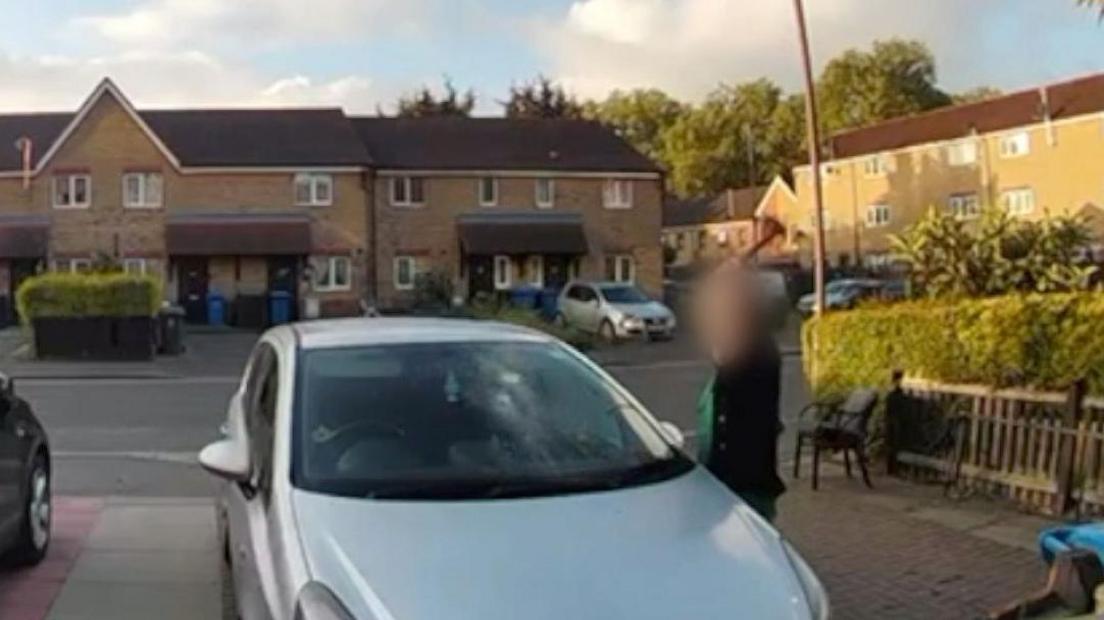
Doorbell footage of Melissa's car being hit with a hammer
Melissa, 25, who needs the car to get to work, says she was in "shock" when she discovered what had happened.
The family believe their housing association, Wandle, has failed to act over the numerous cases of anti-social behaviour, despite much of it being recorded on cameras.
"What is it going to take for them to actually take action and do something to safeguard us and to protect us? Do they expect her to kill us? How is it not enough?" Melissa asks.
Dilara says the windscreen incident has "really affected" her and that, along with other members of her family, she now suffers with anxiety.
Cihan, 29, the eldest daughter in the family says: "There's no real action. There's no real urgency, it's just brushed under the carpet."
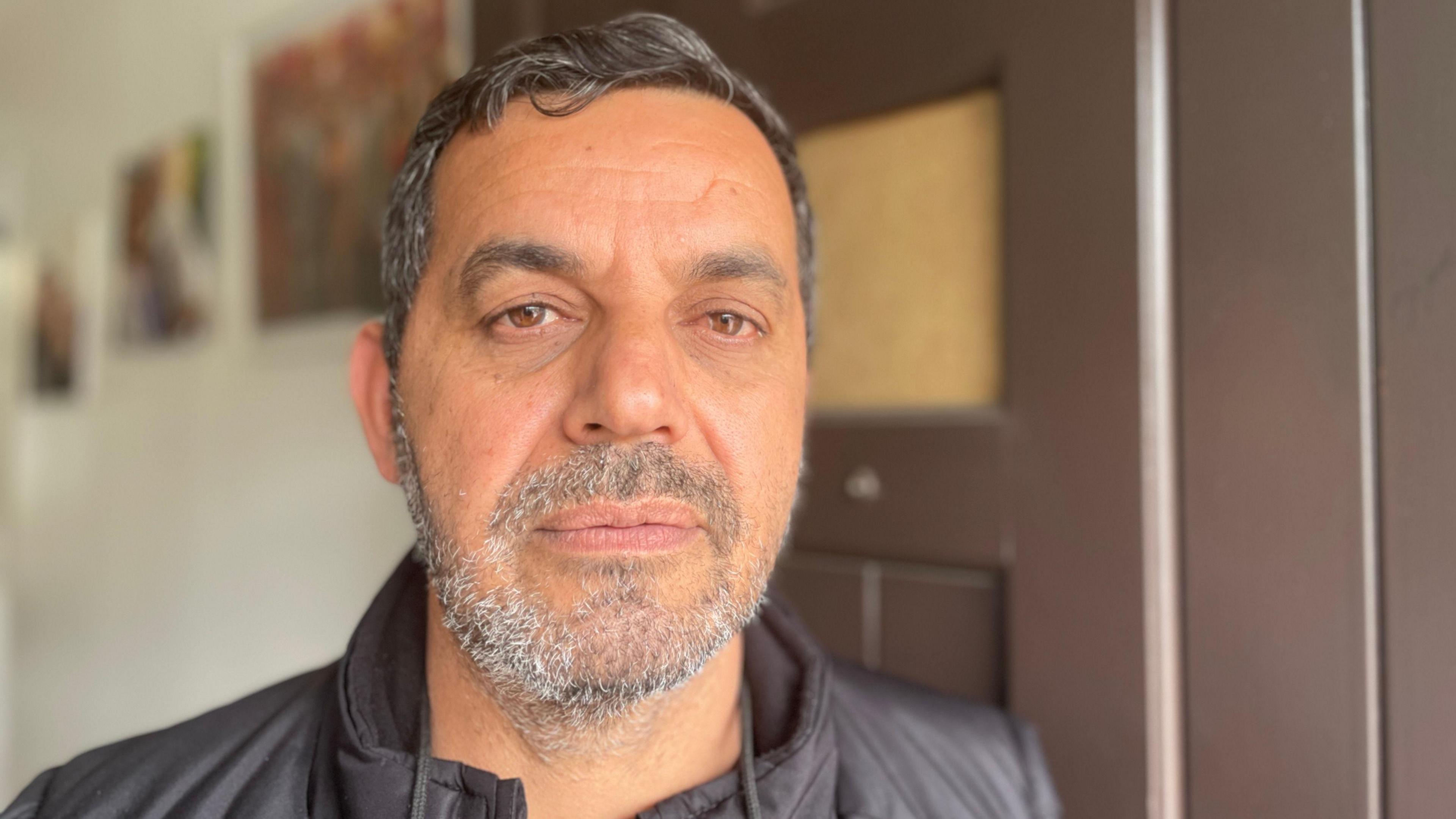
Ecevit says he was left shaking after being threatened
Anne Waterhouse, chief executive of Wandle, said the housing association was "deeply sorry about the distress caused to the resident enduring this unacceptable level of anti-social behaviour".
"Our community safety team has been working with the impacted family, the police, the local authority and several external agencies to resolve the serious anti-social behaviour issues being experienced."
Ms Waterhouse added that Wandle was currently assessing whether the family's property would "benefit from enhanced security during this difficult time".
But the family say their neighbour has also been failed by the system.
"It's also a failure for someone who is clearly very vulnerable and is struggling with their mental health. And you know she deserves all the help that she needs, as well as considering my family's safety," Cihan says.
A Met Police spokesperson said the local Safer Neighbourhoods Team was aware of a "pattern of behaviour" and was working to support the family, as well as liaising with housing associations and mental health services.
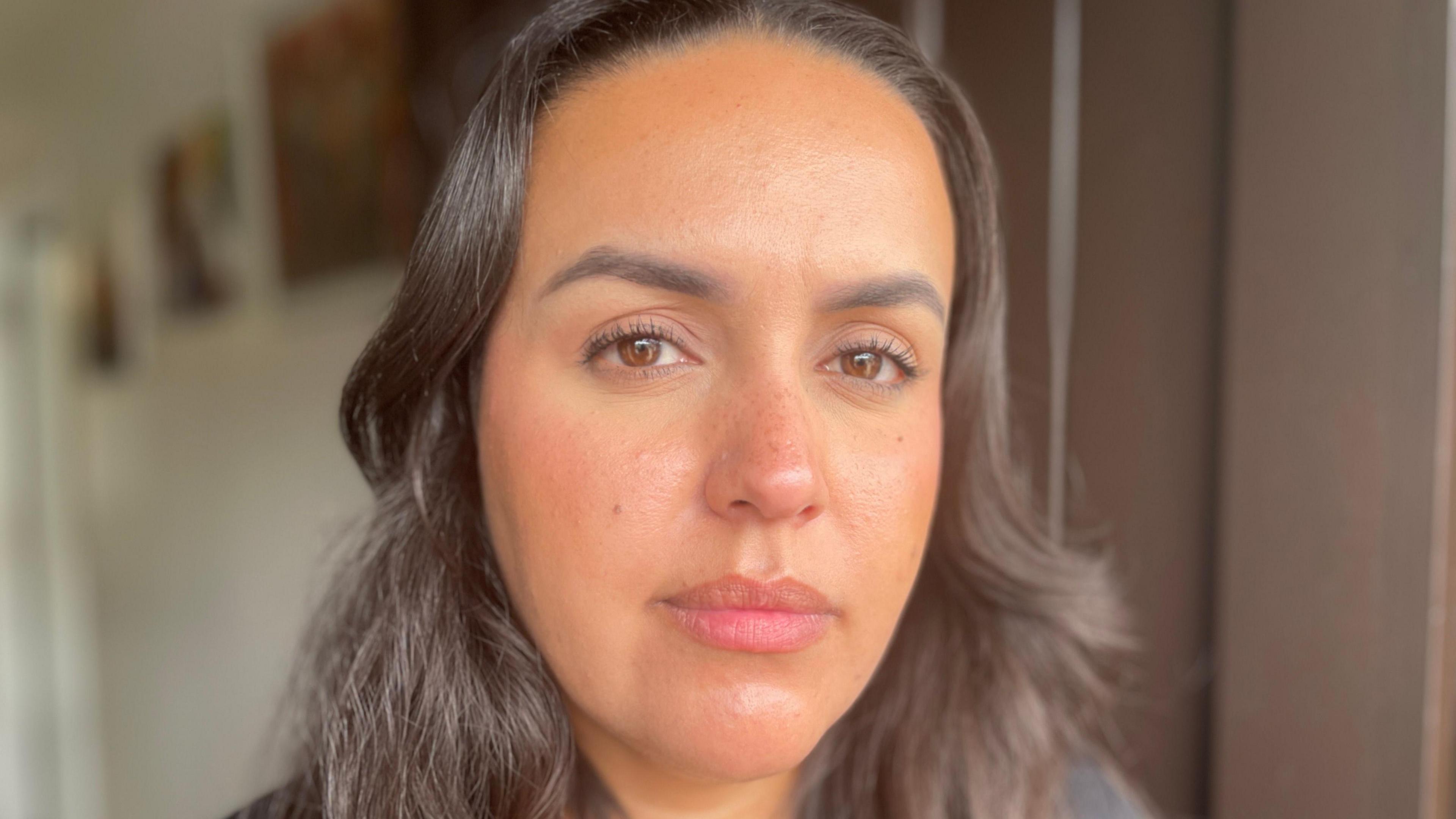
Cihan says her neighbour deserves the help she needs
Exclusive data from the housing ombudsman shows the number of complaints about how social landlords have dealt with anti-social behaviour in England have increased by 119% over four years - from 552 in 2020, to 1,207 in 2024.
The watchdog found many social landlords were failing to protect tenants from anti-social behaviour.
Richard Blakeway, the housing ombudsman for England, says in about "two out of three cases" he looks at involving anti-social behaviour "something has gone wrong".
"In some of the most serious cases, really losing sight of the issues, losing sight of the victim, and the impact of that is deeply shocking," he says.
'I don't sleep'
Others contacted us with similar stories - including Cheryl, in Shoreham-by-Sea, who says four years of complaints about her neighbour have resulted in little action from the authorities.
She says loud music, shouting, abuse and other forms of disquiet have made her life a misery.
"I don't sleep. It's like sharing a house with these people, and it affects every part of everything. I can't go out," she adds. "My routine revolves around them, so I sneak in and out when it's quiet, because it's been dangerous if I don't."
Cheryl says she installed cameras around her house because she feels unsafe.
Another neighbour of Cheryl says anti-social behaviour is impacting her life too.
They both say they have been let down by the woman's landlord, Adur & Worthing Councils. Cheryl says she has been told not to contact them anymore, with the council calling her claims "vexatious".
The council tells us recent complaints from Cheryl are "unfounded" and "hundreds of hours of officer time have been put into understanding the situation and providing support where it is required". This has led to an "improved situation", it says.
In a statement, the council cited "two independent ASB [anti-social behaviour] Case Reviews led by two other councils, both of which have supported the actions we have taken in this case."
The BBC has seen video footage showing multiple instances of shouting, swearing and drinking outside Cheryl's flat, which is above the woman's.
We put all of Cheryl's allegations to her neighbour, who did not want to be interviewed but disputed Cheryl's claims and said she felt harassed because she was being filmed. She also told us she was vulnerable.
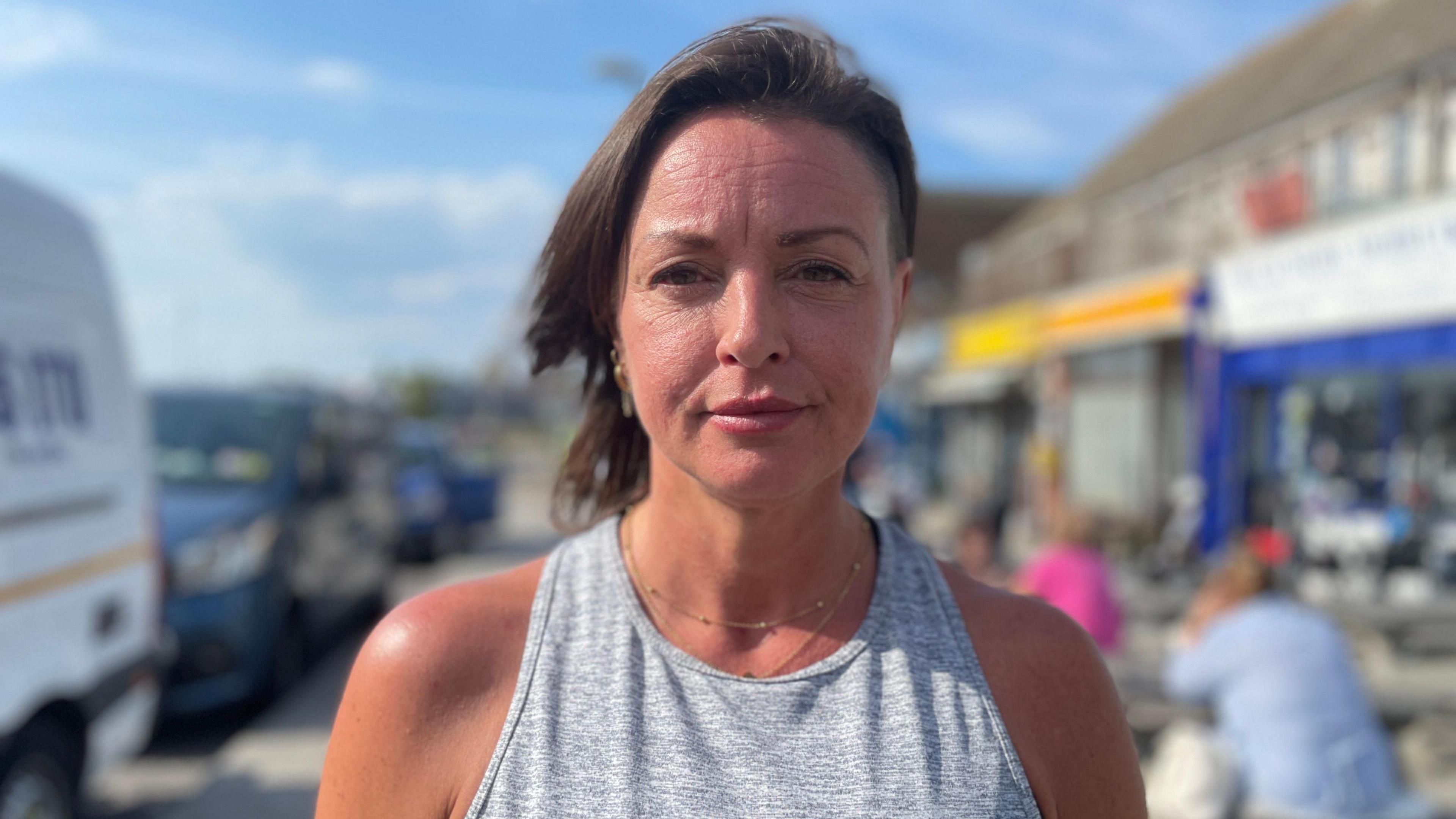
Cheryl says anti-social behaviour has made her life a misery
Sussex Police said it had received "multiple reports of anti-social behaviour between neighbours" since 2021. It said a 61-year-old woman had been issued with a Community Protection Notice, and in August 2024 was ordered to complete a community resolution for a public order offence.
In a statement, the force told us it "understands the impacts of anti-social behaviour on victims and all reports are taken seriously". It said it had "engaged with all parties involved, including the local authority, to identify a satisfactory resolution".
Cheryl says the impact of living in this situation has been devastating and she has spent time in hospital after a suicide attempt.
"It's heartbreaking. It doesn't feel safe, life is hell. It's horrible. It's not a way to live."
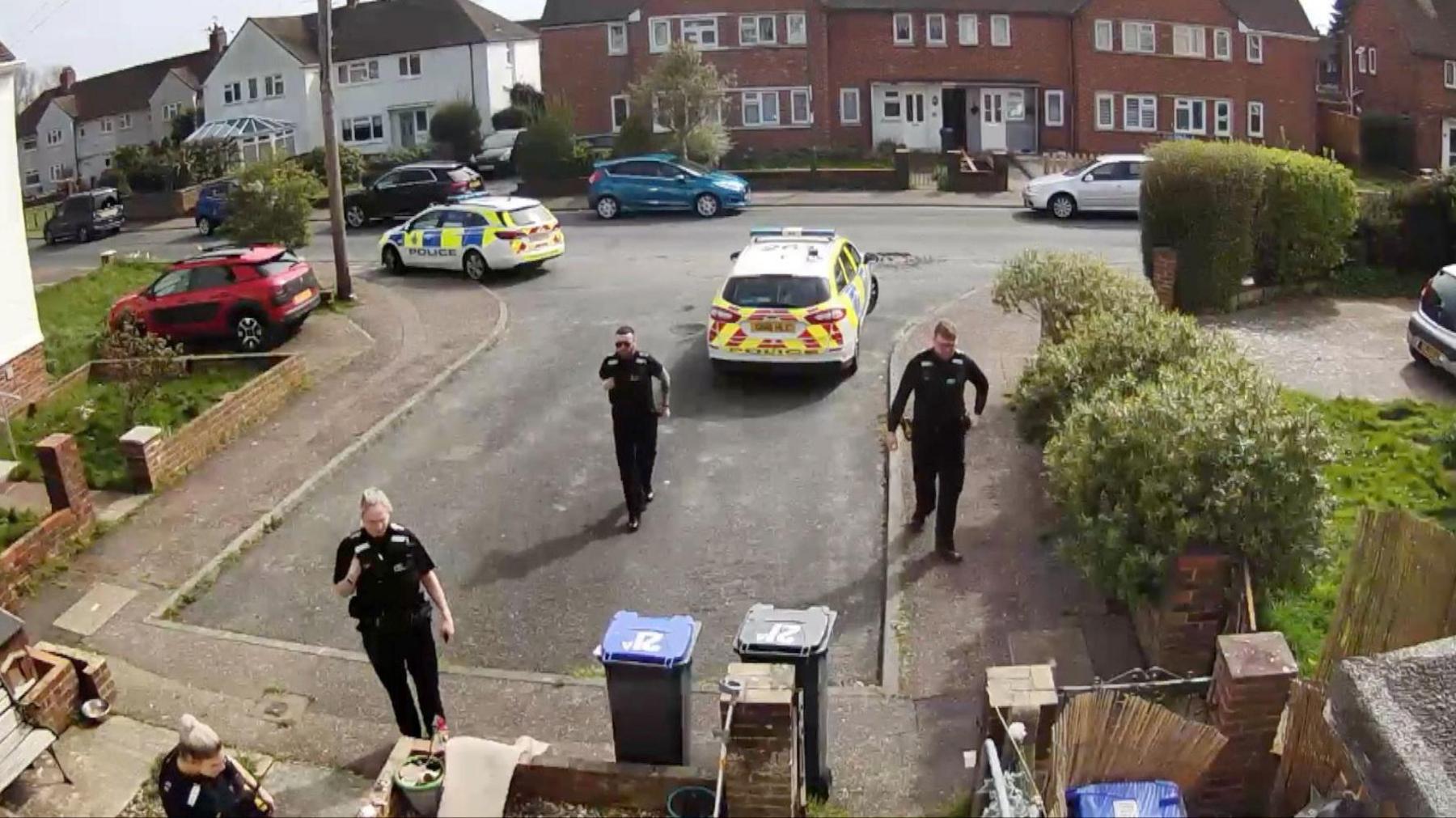
Police say they have "received multiple reports of anti-social behaviour between neighbours beginning in 2021"
Many people who contacted us said they felt ignored by the authorities and isolated as no official body has taken ownership of the issue.
Kate Henderson, chief executive of the National Housing Federation, which represents housing associations, said persistent anti-social behaviour caused "deep distress" but stressed housing associations treated it seriously.
"Many have dedicated, specialist teams whose role it is to manage such cases, to liaise with victims and alleged perpetrators, and to mediate swift resolutions."
Mr Blakeway, the housing ombudsman, said there were laws in place to protect people but there could be a "breakdown" in "cooperation between different agencies".
In many of the cases we have heard about, we were told that people on both sides aren't getting the support they need.
"Social landlords need more support from mental health services, who will be under their own pressures," Mr Blakeway said. "But then social landlords themselves also need to recognise that they need to develop skills to handle mental health issues effectively themselves."
Additional reporting by Tara Mewawalla and Bobbi Huyton.
If you are suffering distress or despair, details of help and support in the UK are available at BBC Action Line

Get in touch
Your Voice, Your BBC News: What story do you want BBC News to cover?